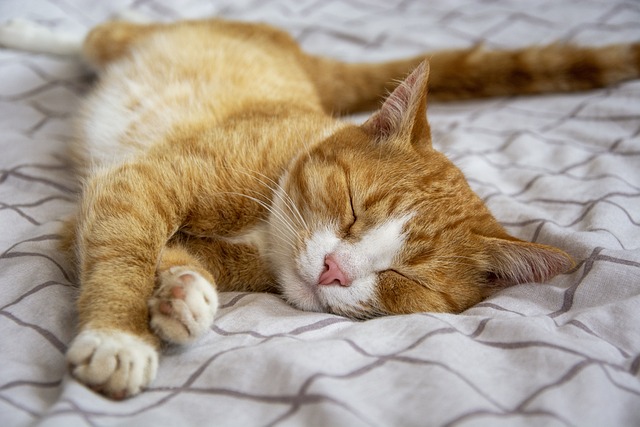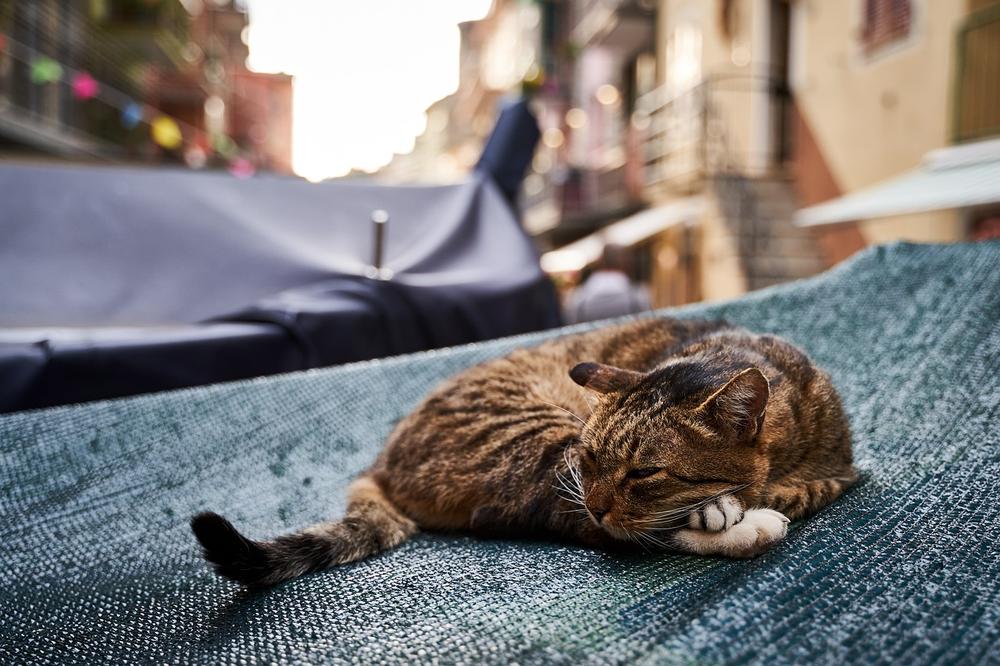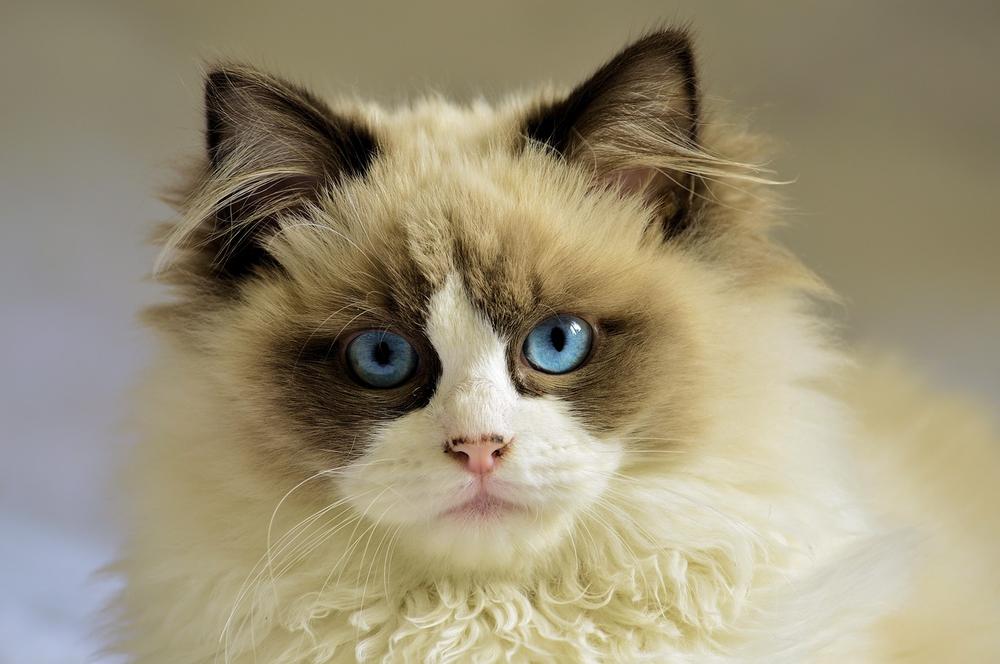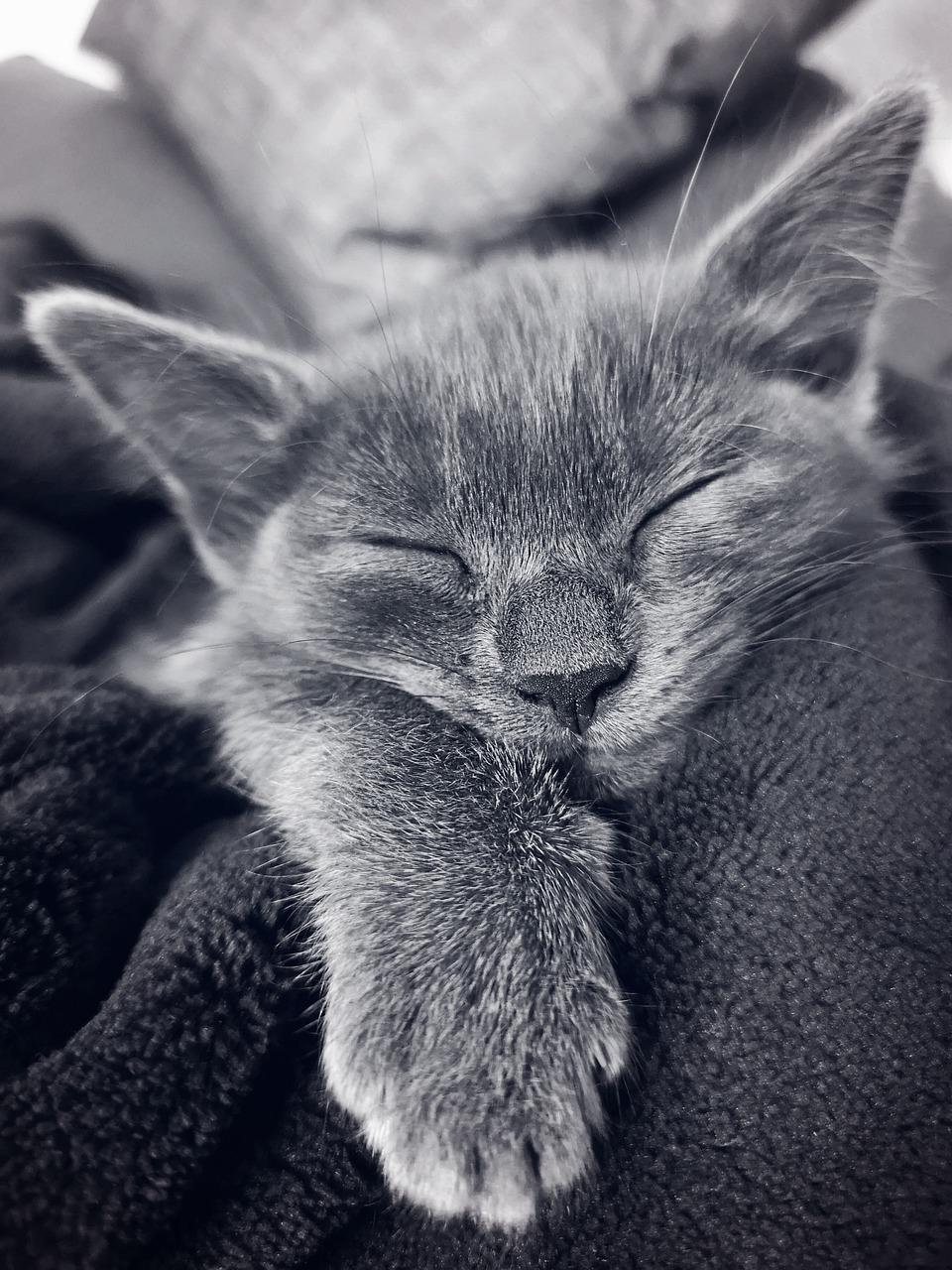Cat Makes Groaning Noise When Sleeping: Here's Why…

Ever wondered why your furry feline companion emits strange groans while curled up in dreamland?
You've probably caught yourself thinking, "Is Mittens okay?"
Curiosity tugs at your heartstrings, urging you to seek answers.😺
Well, my inquisitive friend, today is your lucky day.
Buckle up as we dive into the enigmatic world of cat sleeping noises.
Are you ready to unlock the purr-fect secrets of your cat's slumber symphony?
Let's embark on this captivating adventure together!
Understanding the Science Behind Your Cat's Groaning Noises While Sleeping
Cats groan while sleeping due to their instinctual prey drive, communication in the feline world, and their biological clock. Understanding these reasons helps determine if there are any concerns, but if accompanied by distress or discomfort, it's best to consult a veterinarian.
Cats make those groaning noises while they're sleeping for a few different reasons, and today, I'm going to walk you through each one of them.
By understanding these reasons, you'll be able to address any concerns you may have about your cat's sleep patterns.
First off, sometimes cats groan in their sleep because of their instinctual prey drive.
It's like they're back in the wild, chasing after mice or birds, even in dreamland.
This instinct activates during what we call "REM" sleep, and it can cause muscle twitches that make them groan.
Fascinating, isn't it?
Now, here's another reason: dawn and dusk.
Ever noticed how active cats tend to be during these times?
That's because their biological clock tells them to get moving.
But sometimes, they're so deeply asleep at these hours that they end up making those groaning noises instead.
It's like they're talking in their sleep, telling everyone around them, "Hey, don't worry, I'm still here!"
Speaking of talking, did you know that groaning is actually a form of communication in the feline world?
Yep, just like us humans use words, cats use vocalizations to express themselves.
From adorable meows to soothing purrs, angry hisses, low growls, and even high-pitched caterwauling, every sound has its own meaning. They're basically having a conversation with you, even when they're fast asleep!

But wait, there's more. Cats have this interesting sleep pattern where they mix quick cat naps with deep sleep cycles.
And during that deep sleep, something called the soft palate relaxes, which can produce groan-like sounds.
It's nothing to worry about, though.
Just their bodies doing what they need to do to rest and recharge.
So, why is it important to understand why your cat groans while sleeping?
Well, for starters, it can help you determine whether there's anything to be concerned about.
If it's just their natural instincts or a way of communicating with the world, then there's no need to fret.
However, if you notice any other signs of distress or discomfort accompanying those groans, it's always a good idea to reach out to a veterinarian for further guidance.
It never hurts to have an expert look into things, right?
So there you have it.
Cats groan while sleeping for various reasons, from instinctual prey drive and their biological clock to communication in the feline language.
With this newfound knowledge, you'll be able to sleep soundly knowing that your furry friend is just doing their thing.
Now that you know why cats groan while sleeping, I'm here to help you with another common feline behavior.
If you've ever wondered why your cat bites you when you sleep or how to stop it, I've written a helpful blog post just for you.
Discover the answers and find effective ways to address this issue in my article Why Does My Cat Bite Me When I Sleep.
Common Reasons Why Cats Make Groaning Noises When Sleeping
Groaning sounds during sleep: Let's explore why your cat makes those noises while sleeping.
Have you ever wondered why your cat groans in its sleep?
Well, let me explain a few reasons for this peculiar behavior.
First off, when your cat groans during sleep, it simply means they're feeling content and relaxed.
Just like when they purr or chirp, groaning is their way of showing happiness to you. However, it can also indicate other emotional states.
For instance, if your cat is in heat, groaning may accompany their vocalizations to attract potential mates.
Also, changes in routine or separation anxiety can cause these noises.
They might be groaning because they are frustrated with toys, seeking attention, or even hungry during their slumber.
Did you know that cats have their own sleep habits, just like humans?

During REM sleep, which is common for both humans and cats, they may groan in their sleep.
It could mean they really enjoy their naptime or perhaps they are acting out dreams. Yes, little furballs can dream too!
Something interesting about cats is that they use vocalization not only to communicate but also to mark their territory.
So, groaning during sleep may still serve as a way for your cat to claim its sleeping area.
Finally, you should note that some cat breeds are more prone to breathing difficulties due to restricted airways.
This can result in groaning sounds during sleep as well.
Now that you know some common reasons why cats make groaning noises while sleeping, the next time you hear those sounds, you'll have a better understanding of what message your furry friend might be trying to convey.
But are you aware of the potential medical factors that could be causing your cat's groaning noises during sleep?
It turns out that these noises can have a deeper meaning and significance.
Let's delve into the possible health issues that may be behind your feline friend's nighttime sounds.
Is Your Cat in Pain? Exploring Medical Causes of Groaning Noises During Sleep
Is your cat groaning during sleep?
It could be a sign of medical issues.
Here are some potential causes:
- Dental problems: Dental issues like tooth decay or gum disease can cause discomfort and lead to groaning.
- Arthritis or joint pain: Cats with arthritis may experience pain during sleep, resulting in groaning noises.
- Distress or anxiety: Cats that are stressed or anxious may groan during sleep as a way to relieve tension.
- Cognitive dysfunction: Senior cats can develop cognitive dysfunction, which may cause disorientation and groaning while sleeping.
- Respiratory problems: Conditions like nasal tumors or polyps can cause noisy breathing and groaning during sleep.
- Obesity and short noses: Overweight cats and breeds with short noses like Persians are prone to snoring and groaning during sleep.
- Injuries or trauma: Injuries to the throat or respiratory system can lead to groaning sounds when a cat is sleeping.
If your cat is experiencing groaning during sleep, you should monitor any accompanying symptoms, such as appetite changes or discharge.
If you're concerned, it's best to consult with your vet for a proper diagnosis and treatment options.
And now let me share with you some practical tips on how you can help your cat sleep peacefully and minimize those groaning noises at night!
Tips for Creating a Comfortable Sleeping Environment for Your Cat
To help your cat sleep well at night, give them a cozy bed with soft bedding and maintain a comfortable temperature.
This will reduce the chance of hearing groaning noises that cats sometimes make during sleep.

What's more, ensure that your furry friend has access to food and water before bedtime, as hunger or thirst can lead to strange sounds.
Establishing a stress-free daily routine and keeping an eye on your cat while they slumber contributes to their overall well-being and prevents falls or injuries.
Another tip: address any health issues impacting sleep and try changing sleeping positions. Remember, stimulating your cat during the day and adjusting feeding schedules can also minimize vocalizations at night.
How to Help Your Cat Sleep Peacefully and Quietly
If your cat's nighttime groans have got you worn out, here are some suggestions that might do the trick.
- Play with your cat during the day. This lets them burn off extra energy and increases their chances of snoozing peacefully at night.
- Consider giving them their dinner before bedtime. A full stomach might help them settle down instead of yowling all night for snacks.
- Ease the stress in your cat's surroundings by creating comfy sleeping spots, playing calming tunes, or using pheromone diffusers to set a relaxing vibe.
- Getting your cat spayed or neutered can also aid in better sleep. Unfixed cats may experience hormonal swings that result in restlessness at night.
- If the noise becomes too much, either banish your cat from the bedroom or use earplugs to minimize disruptions to your beauty rest.
Bear in mind that cats can accidentally scratch or bite when they're dreaming, so approach them cautiously.
With these tips, you can help your vocal feline find a more tranquil and silent slumber.
Cat Sleep Solutions for Peaceful Nights
- Cats make groaning noises while sleeping because they are dreaming.
- Groaning is a normal part of deep sleep.
- Groaning is a form of communication in feline language.
- Cats have quick cat naps mixed with deep sleep cycles.
- Cats can have dreams and may produce sounds while dreaming.
- Vocalizations are ways that cats communicate.
- Groaning can indicate various things, such as being in heat or seeking attention.
- Understanding the reason behind a cat's groaning noises can help address the issue effectively.
- Groaning and snoring can indicate medical causes or underlying health issues.
- Hunger or thirst can lead to strange sounds at night, so ensure your cat has access to food and water before bedtime.
- Creating a stress-free daily routine for your cat promotes their overall well-being.
- Alleviating groaning sounds can be done by changing sleeping positions and addressing health problems.
- Reducing stress, feeding your cat at night, and considering spaying/neutering can help make your cat's sleep more peacefully and quietly.
- Take precautions when interacting with your cat while they are dreaming.
- Ensure your cat is in a safe location during their slumber.
And that wraps up today's article.
If you wish to read more of my useful articles, I recommend you check out some of these: Pregnant Cat Hyperactive and Restless, Why Does My Cat Scratch the Window, Why Is My Cat Ignoring Me All of a Sudden, Why Does My Cat Bite My Face, and Why Does My Cat Slap Me With His Tail
Talk soon,
-Sarah Davis